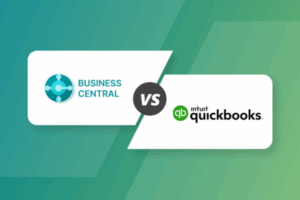5 Common Causes of ERP Implementation Failures
What does it mean for an ERP system to fail? How can something like enterprise resource planning fail? In simple words, ERP implementation fails when it doesn’t meet its objectives. A study reveals that 70% of ERPs fail to meet their goals. You may wonder what causes ERPs to fail in a colossal manner. Here are a few reasons why ERP may fail to be implemented properly:
-
Inadequate Planning and Analysis
As mentioned in the introduction, ERP systems fail when you haven’t planned or prepared for them. It’ll often result in:
- Project delays
- Cost overruns
- Missed goals
You can overcome this problem by defining project goals/milestones and resource requirements.
-
Budget Constraints and Cost Overruns
We mentioned cost overruns above. Budget constraints often lead to ERP implementation failures. You will have to allocate adequate resources and budget for your ERP implementation projects. This way, you’ll avoid score creep and prevent your implementation project from getting derailed.
-
Insufficient Training and Support
When organizations don’t provide ample training and support to employees, the workforce resists this change and doesn’t embrace the new ERP quickly. As a result, you see frustration, errors, confusion, and other problems.
-
Poor Change Management Practices
Without effective change management policies, you won’t get buy-in from employees and stakeholders. It is important to manage change effectively by:
- Communicating the benefits of the new system
- Involving employees/stakeholders from the get-go
- Work with HR to make sure everyone embraces the ERP
-
Complexity and Customization Issues
Lastly, customization issues can lead to ERP failures as well. That’s why you should choose software that is not very complex. Make sure your preferred ERP tool is easy to use for non-tech-savvy workers. This way, you can make the switch from legacy systems to the new ERP easy, efficient, and very rapid.
ERP Implementation Failures: Case Studies, Strategic Approaches, & Technical Aspects
Let’s review some examples of companies that implemented an ERP system but failed big time!
- Nike: In 2000, Nike lost a hundred million dollars in sales due to ERP implementation issues. The reason was simple, i.e., Nike’s ERP choice was incompatible with the systems the company used. So, it became a supply chain nightmare and created a backlog of orders.
- Revlon: Revlon attempted ERP implementation in 2019. However, this process was plagued with deep-set issues from the get-go, preventing Revlon from processing orders or shipments.
- Hershey’s: In 1999, Hershey’s poorly executed ERP implementation. It was rushed, creating an insurmountable backlog of orders. Suffice it to say the company lost $150 million.
How to Avoid ERP Failures?
We’ll discuss strategies and approaches toward ERP implementation to avoid failure and look into some of the most important technical aspects of implementing this system.
Strategic Approaches
- Project Scope: Start by defining the scope of your project. Make sure that all stakeholders are on the same page when it comes to the goals and objectives of ERP implementation.
- Timeline & Budgeting: Set a realistic timeline with a proper budget. You need to allocate ample resources & funds to your ERP implementation project with proper planning/monitoring.
- Risk Management: Since ERP implementation is inherently risky, you must have a proper plan to deal with the risk. Make sure that this plan can identify risks & develop contingency plans to address them.
- Stakeholder Engagement: Keep your stakeholders engaged in the implementation progress. The best way to do that is to provide them with proper education. This includes training end-users to ensure that they are comfortable with the new system and can use it effectively.
Technical Aspects
- Data Migration: Transferring data from legacy systems to the new ERP can be difficult. It can go corrupt at times. So, you have to maintain data integrity by relocating it properly. Ensure that all your data gets relocated without losing crucial bits of information.
- Systems Integration: How well is your current ERP solution integrating with existing software? It is important to make your current systems work well with your new ERP solution, especially the tools that you are using for inventory, accounting, HR, customer relationships, etc.
- Quality Assurance: Test the system to ensure it clears the QA. Your new ERP must meet the key requirements of QA and relevant specifications. Conduct rigorous testing at every phase of the ERP implementation process. This way, you can keep the system free of errors.
- Hardware & Software: Don’t forget to procure the necessary hardware and software. This will help you get rid of compatibility issues.
Measuring the Success of ERP Implementations: 3 Key Metrics
A survey says that ERP systems are the largest category for business software spending. The very same survey will also show you how ERP systems have evolved throughout history. You can see how the idea of “ERP” emerged in the ’90s, with its purposes/constraints changing over time. However, ERPs have also changed since then; the ERP systems used in the 2020s are cloud-based and more comprehensive than a model you might have been using since the beginning of the 21st century. So, you may determine if your ERP implementation efforts have been fruitful or not via these metrics:
-
Defining Clear Objectives and Metrics
Set SMART goals to see if your ERP helps you achieve them or not. As we discussed in the beginning, ERP implementation failure means that your software has failed to meet its objectives. So, you should:
- Set goals that are specific, measurable, achievable, relevant, and time-bound (i.e., SMART)
- Align these metrics with the long-term objectives of your company that are quantifiable
-
Post-Implementation Review and Optimization
Review your ERP software after implementation and optimize it for better results. You can:
- Conduct a review to identify areas for improvement
- Make changes to the system to improve its performance
- Improve the software’s user experience score for better usability
-
User Adoption and Business Impact
Here’s what these concepts stand for:
- User Adoption: The extent to which the system is being used by the end-users
- Business Impact: The changes in the organization’s operations, productivity, & profitability
You’ll determine whether the system is delivering the desired benefits by measuring user adoption and business impact.
How Can Alchemy 365 Help?
Alchemy 365 is the perfect option for ERP Solutions. Our modern approach to ERP solutions will help you modernize how you do business.
We organize your data, gain insights, and make the leap to the cloud. With our post-implementation support, we ensure that the system continues to meet your organization’s needs and objectives. So, feel free to schedule a call with our experts!








































